CONSERVATION CORNER
A weekly blog for all things conservation
|
An excerpt from a previous article by Amy Kneller, previous Farmland Preservation coordinator, BCCD
Open enrollment for Farmland Preservation in Bradford County is each January (now). This is the reason for this article to be printed now. If you are interested, please get ahold of us ASAP. Farmland Preservation requires municipalities, landowners, and funding. To be eligible for the county Farmland Preservation program, farms must: 1) be part of an Agricultural Security Area (ASA) 2) contain at least 50% class I through IV soils, as defined by USDA-NRCS. 3) contain at least 50% harvested cropland, pasture or grazing lands 4) contain at least 50 contiguous acres OR over 10 acres and utilized for a crop unique to the area or contiguous to a property that already has a permanent conservation easement. Ag Security Areas (ASAs) are created by local municipalities to preserve the viability of local farms. Participating farms are protected from some “nuisance” challenges and local ordinances that would unreasonably restrict farm structures or farm practices. The ASA designation does not restrict the use of the property by the landowner. They may develop, sell, or subdivide the property in any manner authorized by local regulations.
0 Comments
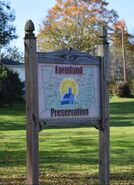 Helping Preserve Bradford County’s Heritage: Become a Member of the Farmland Preservation Board By: Megan Rought, Farmland Preservation ATTENTION ALL FARMERS!! I have a few questions for you. How important is being rural and having beautiful wide-open spaces around you? How important is your farmland to you? How important is it that the next generation carries on your legacy and continues to farm the same piece of ground that you have farmed for the last however many years? Maybe it was even handed down through multiple generations to you, and you want to continue the tradition. How much do you despise to seeing the next piece of pristine farmland be turned into a parking lot, shopping center, or some other sort of development? If you answered that you land is very important to you, that you hope one day someone will continue farming your land and that you hate when you see a prime piece of farmland developed, then I have a great opportunity for you! 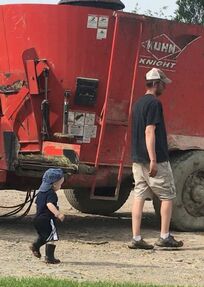 By: Miranda Neville, Agricultural Resource Specialist Looking at the farmers in my life, some were born in to a seventh generation legacy while others chose to be first generation farmers but they all have one specific thing in common. No matter how long they have been farming they will spend their lives building their operation to create a legacy all their own. If (emphasis on ‘IF’) the day comes that they decide to retire or step back from farming, they want to be sure whoever takes the reigns will love and appreciate it just as they do. Finding someone who will take pride in what they do and who shares a passion for agriculture and their land is a rarity. So how does someone who spent their life cultivating their hopes and dreams (not to mention their life savings) ensure their legacy will live on? 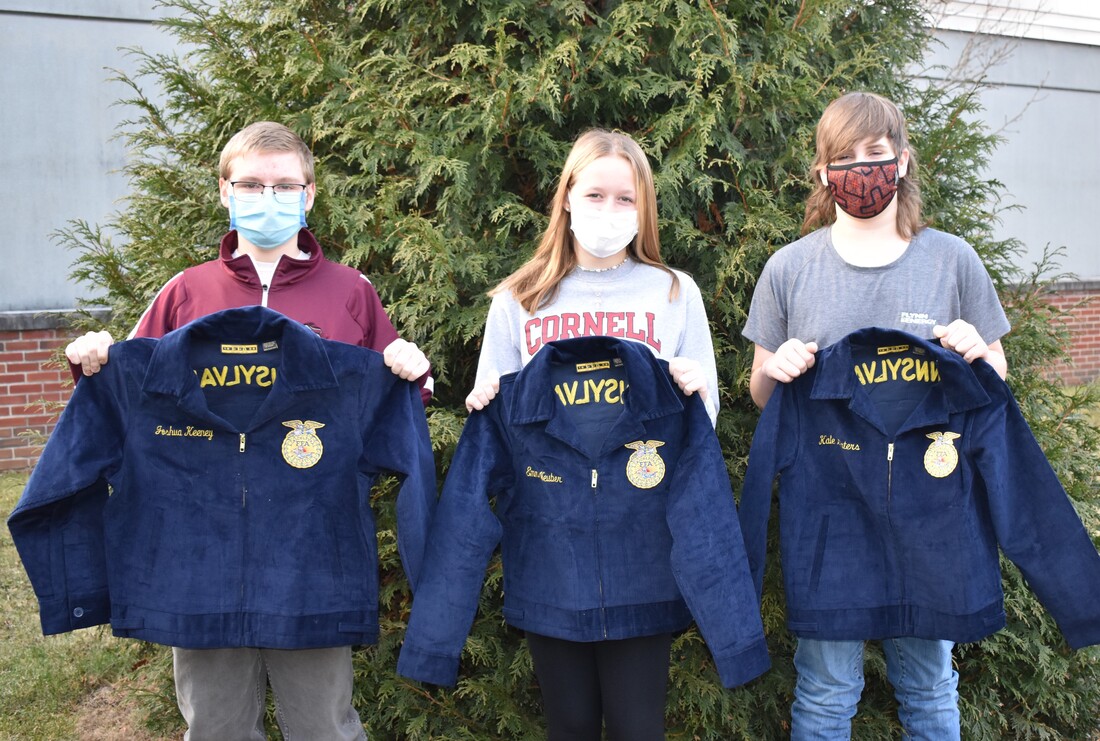 By: Nathan Dewing, Agricultural Team Leader, Bradford County Conservation District Farmers today face challenges. Farmers of any day have. So too will farmers of the future. That is one reason a group like the Future Farmers of America (FFA) exists – to help get them ready. Four Northeast Bradford High School students are now wearing blue and gold as they begin a series of leadership challenges that will shape them for life. Joshua Keeney, Emma Neuber, Kale Winters, and Kaleb Keeney are obviously willing to grow as they don their first FFA jacket in January 2021. Their jackets were awarded to them from the Pennsylvania FFA Alumni Association after each wrote an essay about what the FFA jacket means to them and about their plans in FFA and in agriculture. 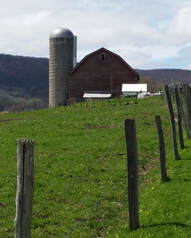 By: Amy Kneller, Ag Resource Specialist Are you interested in protecting farms, farmland, and a persons’ ability to farm? Protecting agriculture doesn’t always require a conservation easement – it can mean simply securing the right of farmers to farm without dealing with overly burdensome regulations. That’s the role of an Agricultural Security Area (ASA), where agriculture is a primary activity in the municipality. Farmers work with municipalities to develop ASAs, which demonstrate that farming is a local priority and promote more permanent and viable farming operations. 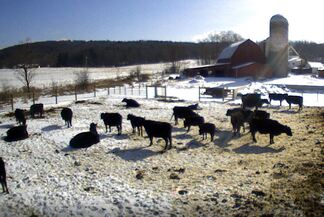 By: Nathan Dewing, Agricultural Team Leader Conditions get tough for managing livestock in the winter. It can be stressful for animals, farmers, and our natural resources. Let’s consider steps to dramatically decrease cold snap stress. If a farmer can cut the wind and give his animals a solid place to land their feet, our winter temps will cause little stress. If relatively dry with a barrier against bitter wind, our animals like 15 degrees F, better than 90 degrees. 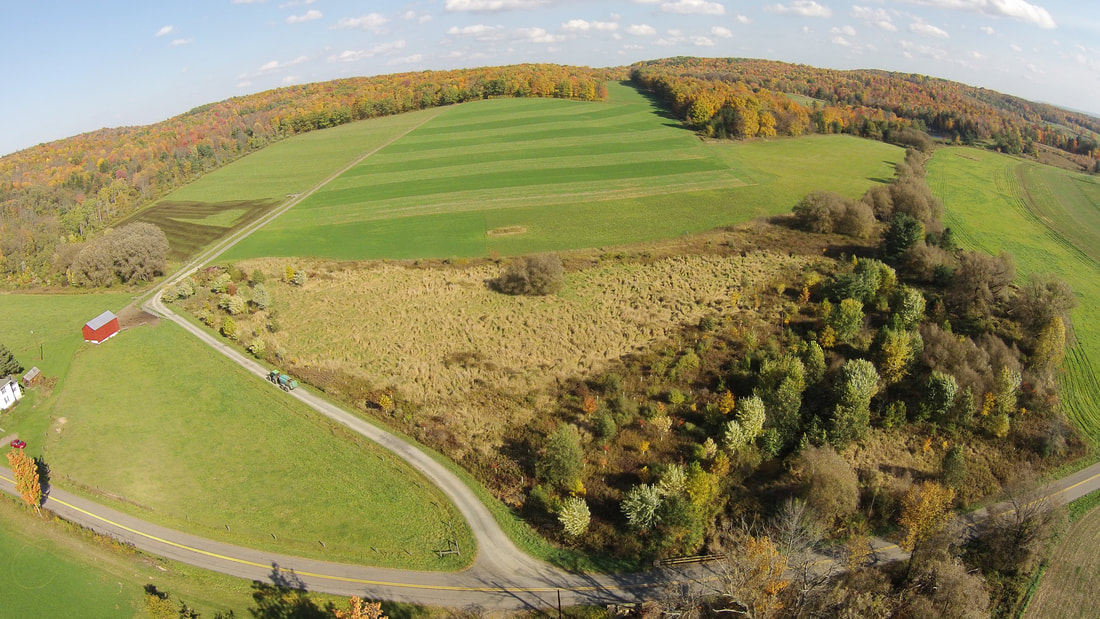 By: Nathan Dewing, Agricultural Team Leader, Bradford County Conservation District Life is drawn to water. We all can relate to that. Land bordering waterways and waterbodies is teaming with life. Riparian is a term literally meaning “riverbank”, or land beside the water. How we manage our riparian land has far reaching effects. Therefore, the conservation district gives considerable attention to equipping landowners to manage them well. Current focus on the Chesapeake Bay watershed is opening many opportunities for landowners wishing to improve riparian areas, including grant funding, plant materials, and more. 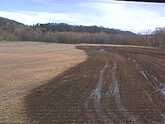 An Excerpt from Pennsylvania’s Nutrient Management Program Nutrient management traditionally has been concerned with optimizing the economic returns from nutrients used to produce a crop. More recently, nutrient management also has begun to address ways to minimize the negative impact of nutrients on the environment. Programs such as the Chesapeake Bay Program and the Nutrient Management Act in Pennsylvania have focused attention on improving nutrient management on Commonwealth farms. 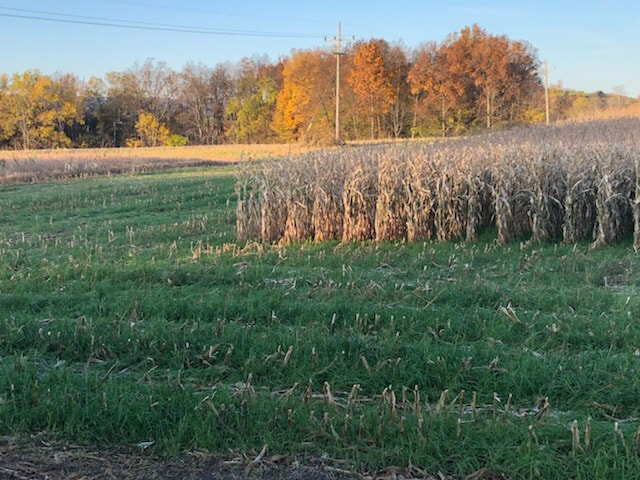 By: Kevin Brown, Agricultural Resource Specialist, Bradford County Conservation District If you have, or intend to, plant cover crops, please read this column. We all hear the benefits touted about cover crops- less erosion, having a living plant in the ground at all times, alleviating compaction, retaining nutrients for the next crop, giving food and shelter to microbes in the soil, and so on. It is a great list and will do some miraculous things to the soil. Try it on a limited basis, if you haven’t already. Then get a shovel out and really look at what happened. There are some benefits that definitely go with cover crops. However, there are some things you should know beforehand that really can affect how those cover crops grow. We have two years under our belt now with our highboy planter. It has been a couple really wet years, so they haven’t been the best, but we have learned some interesting things that I think need to be shared. They are things that I have NOT heard in any other cover crop presentation. It’s like, “plant them and life will be good”. Well, not here. We have really struggled to get some good crops growing, but with the lessons learned, I think that will change. |
AuthorsVarious staff at the Bradford County Conservation District Archives
July 2024
Categories
All
|
|
Bradford County Conservation District
Stoll Natural Resource Center 200 Lake Road, Suite E | Towanda PA 18848 Phone: (570)-485-3144 |
